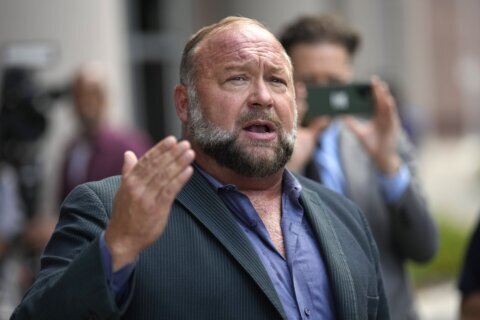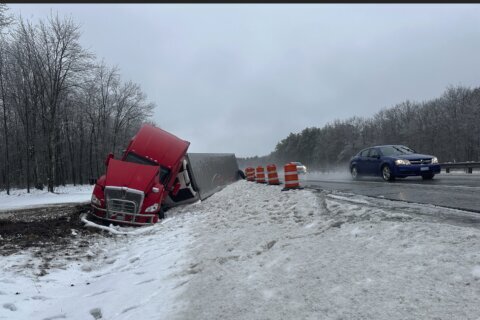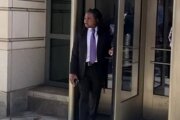U.S. Border Patrol agents who rushed to the school shooting in Uvalde, Texas, in 2022 failed to establish command and had inadequate training to confront what became one of the nation’s deadliest classroom attacks, according to a federal report released Thursday. But investigators concluded the agents did not violate rules and no disciplinary action was recommended.
The roughly 200-page report from the U.S. Customs and Border Protection’s Office of Professional Responsibility does not assign overarching blame for the hesitant police response at Robb Elementary School, where a teenage gunman with an AR-style rifle killed 19 students and two teachers inside a fourth-grade classroom. Nearly 200 U.S. Customs and Border Protection officers were involved in the response, more than any other law enforcement agency.
The gunman was inside the classroom for more than 70 minutes before a tactical team, led by Border Patrol, went inside and killed the shooter.
Much of the report — which the agency says was initiated to “provide transparency and accountability” — retells the chaos, confusion and numerous police missteps that other scathing government reports have already laid bare. Some victims’ family members bristled over federal investigators identifying no one deserving of discipline.
“The failure of arriving law enforcement personnel to establish identifiable incident management or command and control protocols led to a disorganized response to the Robb Elementary School shooting,” the report stated. “No law enforcement official ever clearly established command at the school during the incident, leading to delays, inaction, and potentially further loss of life.”
Customs and Border Protection said in a statement that investigators “concluded none of the CBP personnel operating at the scene were found to have violated any rule, regulation, or law, and no CBP personnel were referred for disciplinary action.”
Families of the victims have long sought accountability for the slow law enforcement response.
Jesse Rizo, whose niece Jacklyn Cazares was one of the students killed, said that while he hadn’t seen the report, he was briefed by family members and was disappointed to hear that it held no one accountable.
“We’ve expected certain outcomes after these investigations, and it’s been letdown after letdown,” said Rizo, a member of Uvalde’s school board.
Federal officials said the report aimed to determine if agents complied with relevant rules and laws, and if anything could improve their performance in the future.
The report catalogs an array of breakdowns and paints a scene of disorder.
One Border Patrol agent said he couldn’t determine who was in command because there were so many agencies. Another agent told investigators he was working an overtime shift when he rushed to the school and was allegedly told by a state trooper, “The chief is in the room with the guy.” He said that led him to believe it was a standoff, so he began directing traffic.
Some Border Patrol agents drove more than 70 miles (113 kilometers) to the school, which is located near the U.S-Mexico border. One agent told investigators the scene looked “like a Hollywood movie with all the lights and chaos.” Another supervisor said he looked for a command post but no one knew where it was.
According to messages between agents in the Border Patrol’s tactical unit, one agent wrote at 11:44 a.m., “Get everyone to Robb school in Uvalde. There’s a possble/shooting guy with AK/AR.” A minute later, an agent sends a message: “Barricaded subject is what their calling it.”
Among the findings in the report was that agents’ active shooter training had not addressed dealing with a shooter behind a locked door or assessing medical needs.
Nearly 400 local, state and federal officers responded, including over 90 state police officials. Multiple federal and state investigations have laid bare cascading problems in law enforcement training, communication, leadership and technology, and questioned whether officers prioritized their own lives over those of children and teachers.
Two of the responding officers now face criminal charges. Former Uvalde school Police Chief Pete Arredondo and former school officer Adrian Gonzales have pleaded not guilty to multiple charges of child abandonment and endangerment. Last week, Arredondo asked a judge to throw out the indictment. He has said he should not have been considered the incident commander and has been “scapegoated” into shouldering the blame for law enforcement failures that day.
Last month, the city released a massive collection of audio and video recording from the day of the shooting, including 911 calls from students inside the classroom. On Wednesday, Uvalde police said an employee was put on paid leave after the department discovered additional video that has not yet been made public. The city has not said what the video shows.
___
This story has been updated to correct that the report was from the U.S. Customs and Border Protection’s Office of Professional Responsibility, not the Department of Homeland Security.
___
Gonzalez reported from McAllen, Texas, and Stengle reported from Dallas. Associated Press reporters Dave Collins in Hartford, Connecticut; Sean Murphy in Oklahoma City; Heather Hollingsworth in Kansas City, Missouri; Juan A. Lozano in Houston; and Nadia Lathan in Austin, Texas, contributed to this report.
Copyright © 2024 The Associated Press. All rights reserved. This material may not be published, broadcast, written or redistributed.







